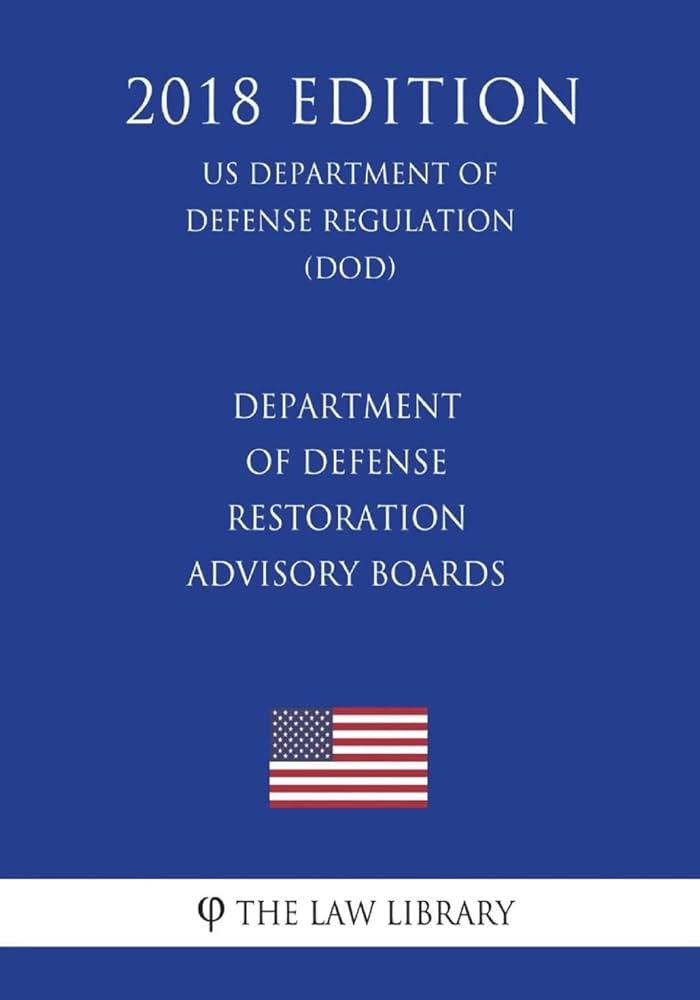A federal judge has ruled that the Department of Defense must restore a collection of books removed from military-related educational programs, reversing a recent policy aimed at eliminating what officials described as “wokeness” in school curricula. The decision, issued amid ongoing debates over educational content and political ideology in schools, marks a significant pushback against efforts to restrict access to diverse perspectives within Department of Defense-funded institutions. This ruling from a U.S. district court underscores the judiciary’s role in addressing the complexities surrounding education, censorship, and free expression in government-affiliated programs.
Judge Mandates Reinstatement of Controversial Books in Department of Defense Schools
In a decisive ruling, a federal judge has instructed the Department of Defense Education Activity (DoDEA) to promptly restore a collection of books that were previously removed from school libraries on the grounds of promoting so-called “woke” ideas. The controversial deletions sparked widespread debate, with critics arguing the removal constituted an infringement on educational freedom and access to diverse perspectives. The judge emphasized that the books’ literary and historical value outweighs subjective cultural objections, underscoring the importance of intellectual diversity in the curricular environment.
The decision comes amidst ongoing national conversations about educational content and censorship. The judge outlined key considerations that guided the ruling, including:
- First Amendment protections ensuring students’ rights to access information.
- The educational merit and relevance of the challenged materials.
- The potential impact of removing diverse voices on student development.
| Book Title | Reason for Initial Removal | Current Status |
|---|---|---|
| “Stamped” | Alleged promotion of “divisive concepts” | Reinstated |
| “The Hate U Give” | Concerns over mature themes | Reinstated |
| “Speak” | Content deemed inappropriate | Reinstated |
Legal Experts Weigh in on Censorship and Educational Freedom in Military Academies
Legal authorities emphasize that this landmark ruling challenges the balance between protecting educational standards and respecting governmental authority over curriculum choices in military institutions. Experts argue that the Department of Defense’s removal of books, predominantly on grounds of alleged “wokeness,” raises serious constitutional questions about First Amendment rights and freedom of speech within federally funded academies. According to these experts, educational freedom should encompass exposure to diverse perspectives and critical thinking, particularly in environments that foster future military leadership.
Analysts point out that this decision could have broader implications, potentially shaping policies on:
- Library and curriculum censorship across all Department of Defense educational facilities
- Rules governing ideological neutrality and academic freedom
- Rights of students and educators to access and provide varied scholarly content
A leading constitutional law professor remarked, “Ensuring that military academies remain bastions of robust intellectual inquiry is essential—not only for individual rights but also for the strength and adaptability of the armed forces.”
Impact of Book Removal on Student Learning and Curriculum Integrity
The removal of books from school libraries and curricula, primarily targeting titles labeled as promoting “wokeness,” has sparked significant concern among educators and experts about the long-term effects on student learning. Excluding diverse perspectives and critical topics from educational materials risks narrowing students’ intellectual horizons and impeding their ability to develop critical thinking skills. By limiting access to a broad range of literature, schools may inadvertently promote a homogenized view of history, culture, and society, which can stifle empathy and understanding among students from different backgrounds.
Curriculum integrity also faces substantial challenges under these removal policies. Academic programs thrive on comprehensive content that reflects complexity and diverse viewpoints. Disruptions in educational resources due to book bans can lead to:
- Reduced engagement: Students may find the curriculum less relatable or relevant, diminishing motivation and interest.
- Gap in critical discourse: Avoiding controversial or challenging topics can create knowledge gaps that are hard to address later in academic progression.
- Inconsistent educational standards: Curriculum quality may vary significantly across districts depending on the extent of book removals.
| Impact | Potential Consequence |
|---|---|
| Limited Perspectives | Stunted cultural awareness and empathy |
| Censorship | Restricted academic freedom |
| Curriculum Gaps | Uneven knowledge foundation |
| Student Motivation | Decreased classroom engagement |
Recommendations for Policy Reform to Prevent Future Content Suppression
Policy frameworks must be revised to ensure transparency and accountability in educational content decisions. This entails establishing clear guidelines that prohibit arbitrary removal of books based on subjective interpretations of “wokeness” or similar ideological terms. School boards and educational institutions should adopt standardized review processes involving diverse stakeholder representation—educators, parents, students, and independent experts—to prevent unilateral censorship. Moreover, a mandatory public notice and comment period before any content removal could foster community engagement and reduce conflicts, safeguarding intellectual freedom within learning environments.
Legislators should also consider implementing protective measures codified into law, such as:
- Legal safeguards that protect against politically motivated content suppression
- Regular audits by independent bodies to monitor compliance with educational standards
- Funding for diversity and inclusion initiatives to enrich school libraries rather than limit access
- Educational programs designed to promote critical thinking and media literacy among students
| Recommendation | Expected Outcome |
|---|---|
| Transparent review panels | Less censorship, more balanced content |
| Public comment periods | Greater community involvement |
| Legal protections | Secure intellectual freedom |
| Diversity funding | Broader representation in libraries |
Concluding Remarks
The judge’s ruling marks a significant development in the ongoing debate over educational content and the role of government oversight in schools. As the Department of Defense moves to comply with the order to restore the removed books, stakeholders on all sides continue to monitor the implications for academic freedom, parental rights, and the broader cultural discussions surrounding “wokeness” in education. The case underscores the complex challenges faced by institutions navigating the balance between diverse viewpoints and community standards in America’s educational landscape.




